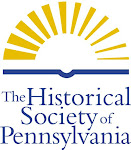
Two weeks ago, among the Chew papers, I came across stacks of deed polls, each one of which effectively transferred 400 acres of land from its original owner to James Wilson. For those of you unfamiliar with Wilson, he is one of only six framers to have signed both the Declaration of Independence and the United States Constitution. In addition, he was also a member of the first Supreme Court appointed by President Washington, and, beyond that, instrumental in the formation of the Pennsylvania Constitution of 1790. Surprisingly, with all these founding credentials, he is still a relative unknown. A large part of that anonymity can be attributed to the documents I found, because they act as a representative sample of the vice that likely cost Wilson his founding reputation – land speculation.
To be sure, Wilson was only one of many leading figures from his generation that speculated in the “undeveloped” lands of the American West. Washington, Patrick Henry, Robert Morris, Thomas Jefferson, Alexander Hamilton, Ben Franklin, along with many others, all were heavily involved in the practice that historian Alan Taylor maintains, “consumed the eighteenth-century American elite.” (Writing Early American History, 2005) Like Wilson, but perhaps not to the same degree, most of these speculators experienced the pitfalls of buying land on the early American frontier.
A good deal of their problems stemmed from the quantities of land they attempted to purchase and the way purchases were financed. In simplified terms, speculators typically tried to purchase massive tracts of land on credit – in many ways the same type of risk-taking that has resulted in our present day financial crisis. Using a process known as leverage, speculators bought land with mainly borrowed money. They acted under the assumption that, as land prices rose, they could then sell the land for more than the purchase price, thus being able to repay the original loan and pocket a profit. As with our own financial crisis, this type of risky behavior created an extremely unstable economic environment. When land prices were rising, an immense profit could be made, but when the prices were stagnant or falling, the original investment became a drain as borrowed money came due – essentially the same problem that took down Lehman Bros. and Bear
Stearns.
Because Wilson’s land speculation rose to the point of obsession, he was particularly hard hit during the economic depression of 1796-97. Both he and Robert Morris, to name just two, spent time in prison because of massive land debts; in the process staining their reputation for posterity.
As for the multiple deed polls contained within the Chew papers, two questions arise: How did Wilson acquire all this land; and how did the Chew family end up with these documents? I am not certain of the answers to these questions at this time, but some clues are available within the documents themselves. First, the lands fell within Allegheny and
Luzerne counties of Pennsylvania. Also relevant, the deed polls date from only two years,1794 and 1796. Additionally, the original warrant dates for when the land was first claimed by a private owner, all fall within the year 1792. It is important to note that this was just after the Pennsylvania legislature passed an act regulating the sale of land by limiting the number of acres an individual could buy; this, in an effort to keep lands newly open for sale out of the hands of speculators which could have effectively denied Wilson access.

However, if Elizabeth K. Henderson is correct, Wilson may have turned to underhanded means. According to her 1936 article on "The Northwestern Lands of Pennsylvania, 1790-1812," (
PMHB, Vol. 60) she claims that Wilson got around the intent of the law by taking out land warrants under "fictitious names" and then transferring the land to his own name by way of the deed polls. That claim is difficult to confirm from the documents available. Another possibility is that Wilson, or his agent, may have obtained the lands from Revolutionary war soldiers who first obtained them as payment for their military service in lieu of monetary remuneration. In any case, Wilson ended up with these lands.
How the Chew family obtained the documents is, once again, uncertain, but likely has its roots in the massive borrowing Wilson did to finance his land ventures. It seems at least possible that Wilson borrowed money from Benjamin Chew and when he or his executors (Wilson passed in 1798) could not repay the debt, land title was transferred instead. Other evidence within the collection, such as account books and personal correspondence, may hold the key to solving this mystery. The answer to these questions, and many others await the interested researcher.
Posted by Dean Williams, Chew Papers volunteer


























